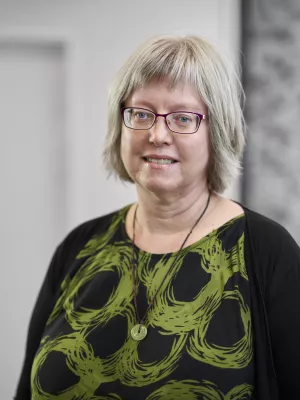
Marina Svensson
Professor

The Performative, Sensory, and Embodied Experiences of Heritage: Spatial Changes and Heritage Construction in Rural and Urban China
Author
Summary, in English
performative, sensory, and embodied experiences of heritage practices, as
well as by the recent “spatial” turn in China studies. Both rural and urban
China has undergone dramatic spatial changes since 1949 that at first
were brought about by ideological and political movements and later by
market economic reforms. These changes have destroyed many sites,
buildings and cultural practices of importance to the local community.
Ancestral halls on the countryside were for example after 1949 confiscated
to serve as government offices or cowshed, and this physical
appropriation also implied a denial of certain memory practices and place-makings such as ancestor worship and temple fairs. With the ideological
more open climate of the early 1980s, many old cultural practices have
been revived and traditional buildings re-claimed or re-built on the
countryside. In the cities a similar revival has not been possible and the
spatial changes brought about by the market reforms have more
dramatically challenged people’s links with the past. However, in recent
years different actors, including local governments, businesses,
intellectuals, and civil society actors have been engaged in different
attempts to re-create and commemorate the urban past. This also include
some more grassroots and alternative readings, commemorations, and
re-imagination of urban space in the form of documenting old buildings
and creating so-called heritage walks or city walks that aim to re-create
and link people with the past. This type of embodied experience of the
urban neighbourhood and ways of performing cultural memory through
walking is common in many historic preservation and regeneration
projects in the West but a new feature in China.
In the paper rituals and ceremonies, in the form of ancestor worship
during New Year celebrations and temple fairs, in one village will be
discussed with respect to their temporal, spatial, sensory and
performative memory practices, and contrasted with attempt to re-create
and re-imagine the past through heritage mapping and heritage trails in
one urban neighbourhood. The different contexts, processes, and
stakeholders in rural and urban China will be identified and discussed. In
focus will also be the challenges and negotiations that occur when sites
are elevated to heritage sites and cultural practices become inscribed as
intangible heritage (or official cultural festivals) promoted and
administered by local governments or tourism companies rather than by
the local community itself.
Department/s
- Centre for East and South-East Asian Studies, Lund University
Publishing year
2012
Language
English
Links
Document type
Conference paper: abstract
Topic
- Cultural Studies
- Social Sciences Interdisciplinary
Keywords
- heritage
- history
- China
- Asian studies
Conference name
The Association of Critical heritage Studies Inaugural Conference
Conference date
2012-06-05 - 2012-06-08
Status
Published
Project
- Kulturarv och bevarandefrågor i Kina

